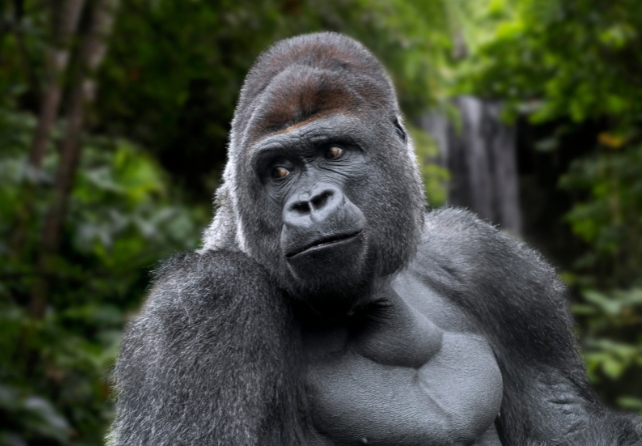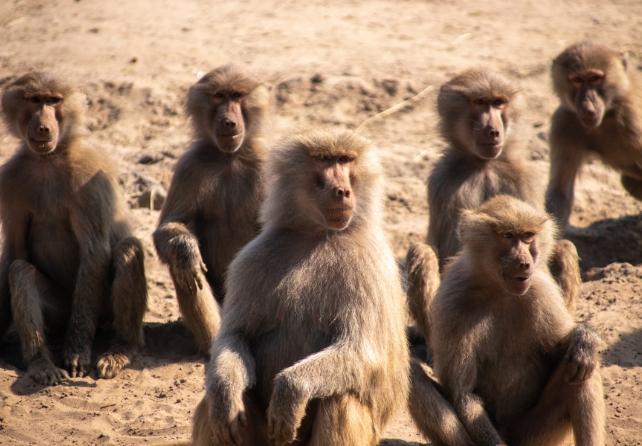
[ad_1]
All of us needed to make changes because the COVID-19 pandemic unfolded – even zoo animals who had been instantly not seeing crowds of tourists go by each single day.
In a examine revealed in 2022, researchers found how primates reacted to that shift, wanting on the conduct of bonobos, chimpanzees, western lowland gorillas, and olive baboons, and discovering that the animals modified their habits in a wide range of methods, together with the period of time they spent resting and consuming.
Customer interactions are regarded as essential to the welfare of zoo animals. But these interactions have the potential to be both optimistic or destructive. So the researchers had been eager to see the distinction when the crowds weren’t there.
“Primates are a number of the most cognitively superior species in zoos and their interactions with guests are complicated,” zoo animal welfare scientist Samantha Ward from Nottingham Trent College within the UK defined on the time.
“A limitation to understanding how guests can have an effect on conduct of animals in zoos and parks is that they hardly ever near the general public for extended durations, so this offered us with a novel alternative.”

Observations had been recorded at Twycross Zoo and Knowsley Safari within the UK, each earlier than and after guests returned.
Over a number of months and a number of open and closure durations, there have been noticeable adjustments in primate conduct, which various relying on the animal.
As guests started to return to the zoo, the bonobos and gorillas spent much less time alone, whereas the gorillas additionally spent much less time resting. Chimpanzees, in the meantime, had been consuming extra and interesting with their enclosures extra when zoos reopened.
The olive baboons within the safari park had been seen to have interaction in much less sexual and dominance conduct when the guests got here again. Additionally they tended to method customer automobiles extra usually, in contrast with the ranger automobiles they noticed when the park was closed.

Whether or not or not these adjustments had been optimistic is tougher to say.
The researchers counsel that the returning guests appeared to stimulate the chimpanzees and baboons, whereas gorillas and bonobos spending much less time alone may be considered as optimistic.
On the identical time, it might be argued that gorillas – naturally extra sedentary animals – had been disrupted by the crowds in that they spent much less time resting.
That the gorillas modified the components of their enclosures they spent probably the most time in when guests got here again means that the animals can to some extent handle this disruption.
“Behavioral adjustments and adjustments in enclosure use within the presence of tourists highlights the adaptability of zoo species to their environments,” mentioned zoo animal welfare researcher Ellen Williams from Harper Adams College within the UK.
“Provision of environments which allow animals to actively adapt on this method is de facto essential for his or her welfare.”
The staff additionally noticed that there was a customer quantity threshold when it got here to olive baboons, past which the animals stopped turning into more and more energetic and stimulated by the passing automobiles within the safari park.
That is all priceless knowledge for animal welfare researchers, who know that guests can have all types of results on wildlife – from including emotions of companionship and security, to being sources of annoyance and even threats. This must be factored into how zoos and parks are run and designed.
Whereas there may not be any extra lockdowns within the foreseeable future (hopefully), the analysis staff desires to proceed the work of learning how customer numbers have an effect on animal conduct, together with gathering knowledge involving extra animals and throughout an extended time scale.
“Future work might contain wanting on the influence on a wider vary of species in each zoos and safari parks in addition to variations amongst particular person animals,” mentioned Williams.
The analysis was revealed in Animals.
An earlier model of this text was revealed in September 2022.
[ad_2]